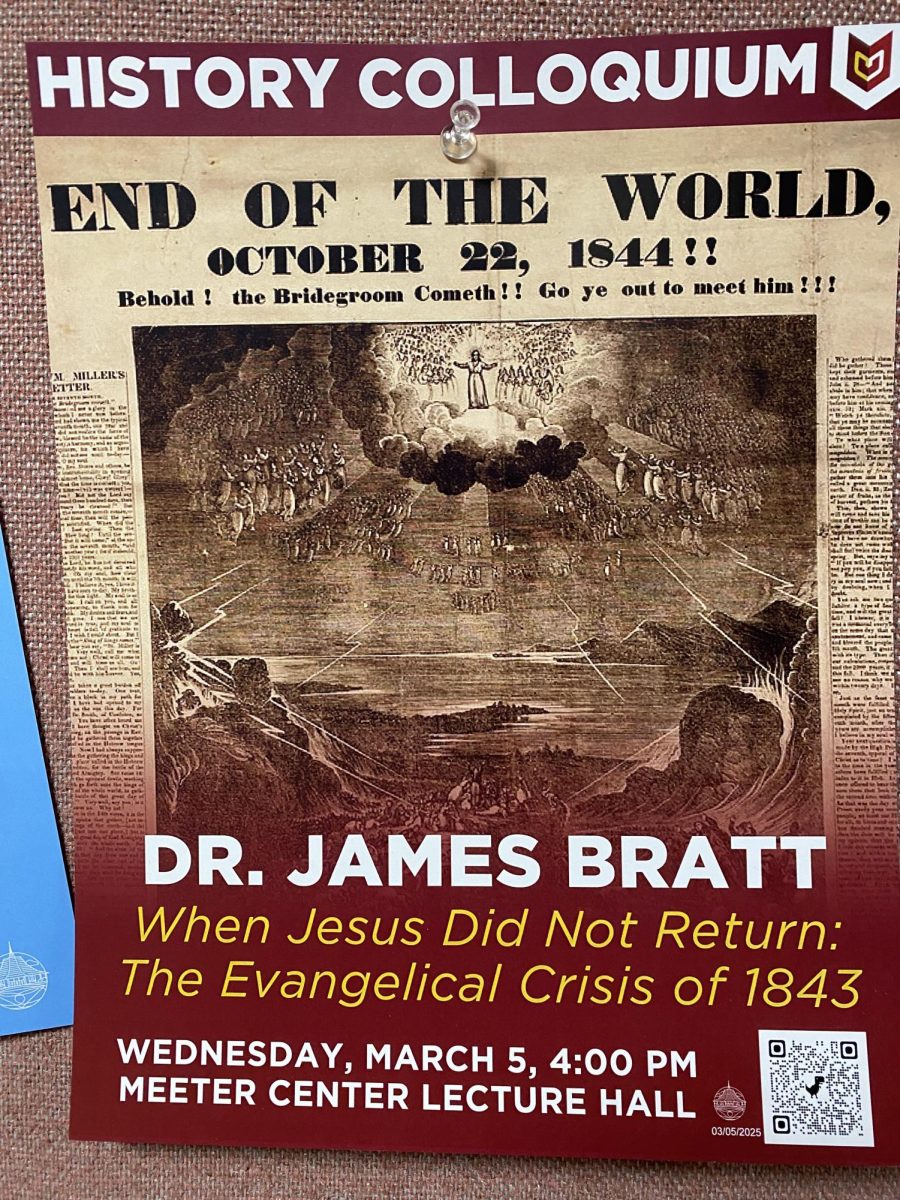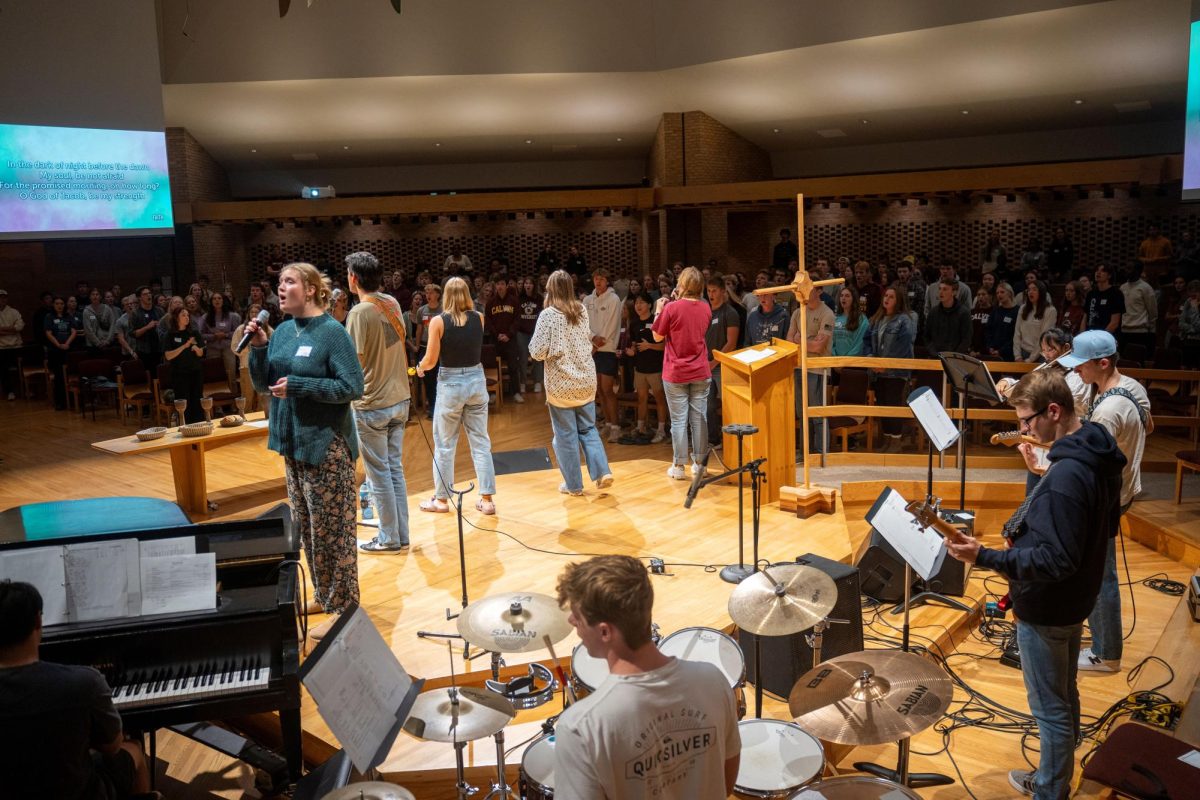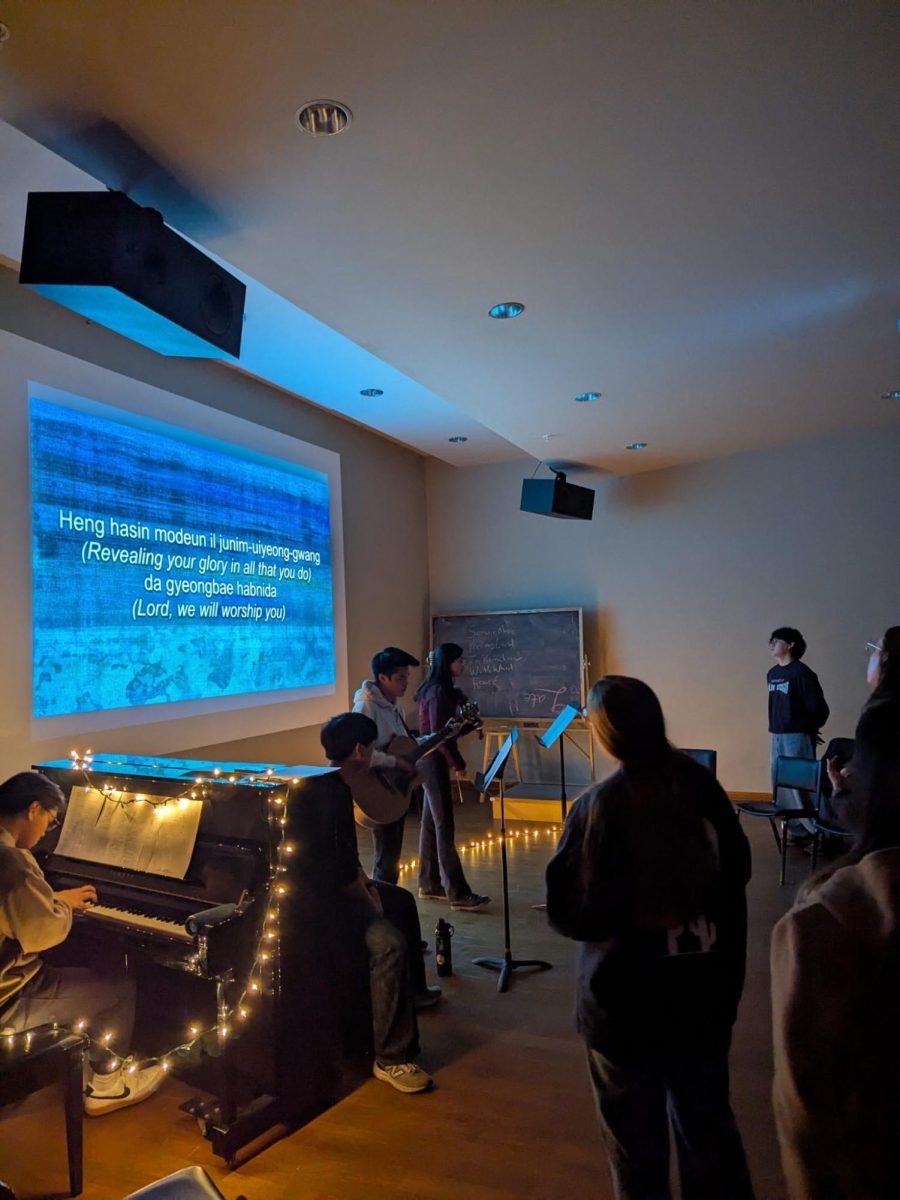Not only did last week’s debate between Ken Ham and Bill Nye attract over three million viewers, but it also jumped to the top trending topic on both Facebook and Twitter. Over 70 media representatives and over 10,000 churches, schools and colleges live streamed the debate.
What’s the big deal about it? Conrad Blom, a senior studying mathematics, reflected on why the debate might have prompted such a wide viewership.
“I think part of it was that people were intrigued to see whether Ken Ham had a valid argument in the face of a consensus among scientists,” Blom said.
Anthony Meyer, a senior who is double majoring in philosophy and mathematics, thought Bill Nye’s popularity might have attracted the wide viewership.
“He is very iconic and entertaining, and I think many people respect what he has to say,” Meyer said.
Meyer added that “the general public finds [the topic] difficult to understand, so they look to people like Nye and Ham to … help them wrestle with these issues.”
The debate interested many in the Calvin community because of the implications the discussion of creation and evolution have on their Christian faith. Blom reflected on these implications.
“This debate included not only a clash of scientific worldviews, but also of theological ones,” Blom said.
Nye, an agnostic, supports the Big Bang theory. Ken Ham, a Christian, supports young-earth creationism.
“[Someone] can still be a Christian regardless of his or her belief regarding the creation account,” Blom added, “but it is a very important issue, and there is potentially a lot at stake.”
Blom thinks that Christians should be attentive to the question of the origins of the earth because of its serious theological implications.
“That aspect of one’s beliefs can bring up challenging questions on other significant theological fronts,” Blom said.
“If we throw out the first few books of Genesis, how trustworthy is the rest of the Bible? Is ‘survival of the fittest’ a method our God would use to bring about his creation, and what does that say about the nature of God? Are we made in God’s image if we are descended from other animals? I think those issues are not addressed as much anymore.”
Paul Harper, associate professor of physics, draws different conclusions on the topic than Blom.
“For me, I think evolution and creation are compatible and God used evolution to create a remarkably diverse and beautiful biosphere,” Harper said. “This was the worldview that I grew up with as a pastor’s son and, over the years, I’ve found that this perspective is also shared by most Christians who are professional scientists.”
But Harper says that despite different perspectives, Christians must still discuss the topic.
“I recognize that there is disagreement among Christians about these issues. It seems to me to be far better to talk about our differences rather than shutting down discussion.”
Harper also said that he hopes language about the validity of respective arguments would not obstruct discussion or prevent “iron from sharpening iron.”
Meyer said that Christians should engage in the discussion, but approach it with caution.
“It can … be a dangerous debate for us to have as Christians if it is not approached with humility,” Meyer said. “It is important for us to acknowledge our own fallibility and realize that we are all on the same journey, searching for the truth.”
For Ham, one central goal of the debate was to counter the censorship against creationists’ view of origins.
“Our public schools arbitrarily define science as explaining the world by natural processes alone,” Ham said in a blog on CNN. “In essence, a religion of naturalism is being imposed on millions of students. They need to be taught the real nature of science, including its limitations.”
Blom found this a crucial point to the debate. He said the idea that science and belief in creation without means of evolution are mutually exclusive is a problem that leads young scientists to unnecessarily reject one or the other.
“Ham demonstrated the limitations of what humans can know based on science alone,” Blom said. “He also showed that science is not the only means of discovering truth when he brought the Bible into the discussion. … For Nye, by far the most important means of discovering truth is through science, while Christians have special revelation which cannot be diminished.”
Harper, however, suggests a way to reconcile a belief in God as creator with an evolutionary process of creation.
“I’d take the perspective that God created natural processes and so a definition of science that focused on understanding these processes in no way excludes God,” Harper said.
Meyers said that he hopes the facts given in the debate do not keep people from searching the Bible for conclusions.
“I think Calvin students should care about the debate, but I think they should be wary not to get too distracted by it,” Meyer said. “It is important for each of us to understand what we believe and why and to take the time to seek God for wisdom and search the Scriptures.”
Blom also said that searching the Bible must be a priority in these kinds of questions.
“As Christians, we embrace science, but the heart of what we believe should still be the Bible; that is our starting point. If that’s used as something secondary, that’s a problem.”
Harper also stressed that unity in the church is more important than the question of creation, and critical engagement with this topic may not be crucial for every Christian.
“I’m a big proponent of the body of Christ, that each of us has particular but interrelated roles to play in serving God,” Harper said. “So, while these issues should definitely be of importance to the body of Christ, they may or may not be important to individual Christians, depending on their calling.”
Harper hopes that Christians who choose to engage in this debate do so with careful study, remembering that the body of Christ is called to be unified despite certain disagreements.
“All Christians who enter in to these debates have a responsibility to be honest, careful and educated,” Harper said. “It is hugely important that Christians do not repel non-Christians by sloppy or dishonest handling of the truth; on the other hand, I also believe that Christians can disagree on these issues and still be fruitfully joined together in the body of Christ.”






